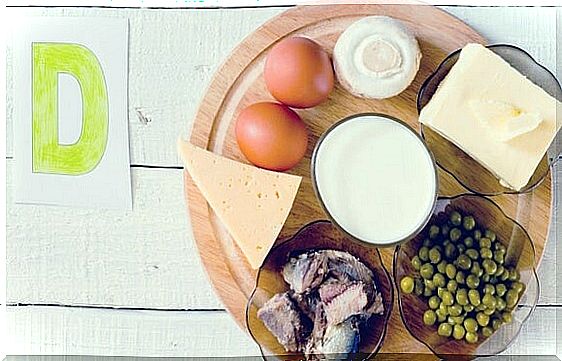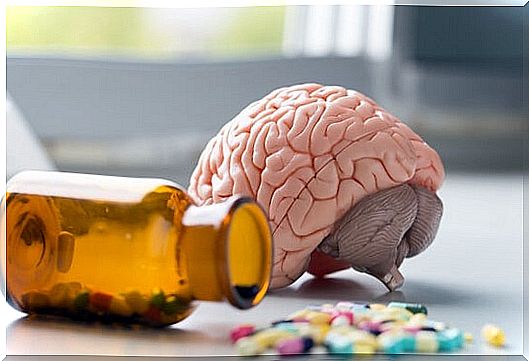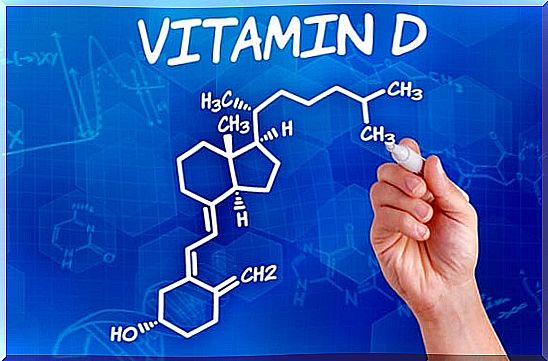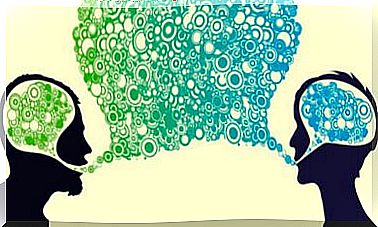The Brain And Vitamin D: A Relationship You Should Know

The brain and vitamin D have a relationship that not everyone knows about or that is at least not as popular as others. It is known that a deficiency in this vitamin has an impact on the cognitive level and on our neuronal aging. We are, therefore, before a neuroprotective that goes far beyond its role in the quality of our bones or in our ability to synthesize numerous minerals.
Many people suffer from hypovitaminosis D without knowing it. In fact, it is estimated that almost 60% of people between the ages of 50 and 60 experience a lack of this type of steroid. The elderly population, for its part, suffers from it in 80%. If this is so, it is mainly due to two very specific reasons.
The first is that as we mature and get older, we stop synthesizing it so easily. The second is mainly due to our lifestyle habits. Vitamin D is synthesized through the skin and thanks to sunlight. We can also obtain it through the diet, especially with dairy products.
Now, due to our jobs or even to the fact that as we get older we leave the house less, we stop receiving it naturally with sunlight.
Let’s see all the data below.

The brain and vitamin D: the quality of our cognitive processes
Difficulty concentrating, memory loss, difficulty in reasoning, in drawing conclusions, in retaining new information … All of them are processes that can be affected by vitamin D deficiency. They are neurological symptoms that are sometimes overlooked and that are not they are always related to this lack.
In general, every time we talk about this vitamin we associate it with calcium, with the resistance of our bones and with the appearance of osteoporosis in case of not maintaining optimal levels. Now, the relationship between the brain and vitamin D has been known for a few decades, when it was discovered, for example, the large number of processes that regulates this element so essential for our well-being.
- For example, vitamin D is known to activate and deactivate enzymes in the brain and cerebrospinal fluid that are involved in neurotransmitter synthesis and nerve growth.
- Also, this vitamin protects neurons and reduces inflammation.
- A study by neuroscientist David Llewellyn at the University of Cambridge showed that at lower levels of vitamin D, people performed worse on tests of agility and mental performance.
- The ability to process information becomes slower and more difficult.
As we can see, sometimes something as simple as suffering from a vitamin deficiency has a direct impact on our brain health.
Symptoms of a vitamin D deficiency
If we lack vitamin D, it is most likely that we will not notice the symptoms at first. What’s more, the lack of this vitamin is sometimes attributed to other disorders and conditions, and even simple aging. Now, one of our personal objectives should be precisely to invest in a good aging, in a good quality of life where we take care of our cognitive processes, of the health of that brain that, like a fabulous muscle, can reach ages you advance in good shape.

Let’s see now what possible symptoms are associated with hypovitaminosis D:
- Tiredness.
- Muscular weakness.
- Hip and back pain.
- Trouble concentrating.
- Memory loss
- Trouble retaining new information.
How can we cover our vitamin D deficiency?
The pharmaceutical and food industry, also aware of this relationship between the brain and vitamin D, launches products enriched with this dietary source on the market. Thus, it is more than common to find from milk, yogurts or even cereals where vitamin D is already present.
Let’s see, however, other sources with which to always have good levels of vitamin D.
- Sunbathe every day for half an hour (avoiding the central hours where the sun’s rays are harmful).
- Salmon
- Eels
- Tuna.
- Sardines
- Oysters
- Chanterelles (a type of mushroom)
- Shiitake mushrooms.
- Cheese.
- Milk.
- Eggs.
- Chickpeas.
- Almonds
- Broccoli.
- Seaweed agar.

To conclude, given that the relationship between the brain and vitamin D is evident, do not hesitate to consult with our doctor to find out if we suffer from any deficiency. Before resorting to vitamin supplements on our own, it will always be more advisable to have the advice of good professionals or implement a food that contains it in the diet.
Having good levels of this element will allow us to even have a stronger immune response and even a more resistant state of mind to face difficulties and daily stress. Therefore, let’s not neglect the importance of a good and correct diet.









